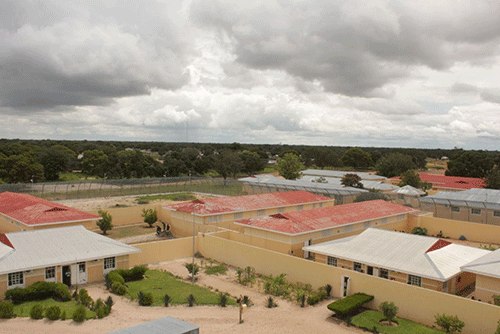For some, prison is the end of the road; for others, a punishment, while others see it as a second shot at life.
The latter is what can be said about at least 5 946 inmates who have earned high education qualifications from different institutions between 2016 and 2023.
The graduates are among the 8 079 inmates who registered for different courses while incarcerated at various Namibian Correctional Services prison facilities countrywide.
“This year, we have a total of seven inmates who graduated from the Namibia University of Science and Technology, University of Namibia, Stadio Namibia and the Namibia College of Open Learning,” said NCS education officer Samuel Hamukoshi.
He pointed out that a majority of the registered inmates are studying law.
However, it is not all rosy for inmates pursuing further studies.
Inmates face challenges such as limited resources: ICT equipment, shortage of books and restricted time for completing assignments.
The NCE, however, has qualified educators who support inmates with their studies.
Also, several facilities within the correctional facilities have libraries where inmate students borrow books.
Such libraries, however, are not fully equipped, but the NCS makes arrangements with various libraries at institutions of higher learning to procure study materials for the inmates, the education officer said emphatically.
According to Hamukoshi, inmates pursuing courses at institutions of high learning are funded by the Namibia Students Assistance Fund, provided they have met its strict requirements.
Like any other university student, inmate students also receive non-tuition fees that help them buy study materials, including laptops, he said.
He further stated the grade 11 and tertiary education programmes are done on a self-funded basis. However, grade 11 inmate students are only allowed to pay for their registrations and subjects, and they are exempted from paying examination fees.
Lesson 1
Last year, another encouraging story emerged from behind the high prison walls.
New Era reported exclusively how the NCS was running its farms productively, while other government initiatives, such as green schemes, have struggled to reach their full potential.
Between 2021 and 2022, the NCS pumped N$26.5 million into its farming activities to produce goods, valued at N$58.8 million.
At present, the correctional service operates six production farms, producing white maize, wheat, vegetables, fruits, beef, pork and animal fodder.
The farming activities take place at Divundu, Evaristus Shikongo, Hardap, Oluno, Omaruru and Swakopmund correctional services.
Not only does the NCS process wheat grains into bread flour to supply to all 14 correctional facilities, equipped with bakeries, but white maize grains are also processed into maize meal for the inmates’ consumption.
They also produce ‘Max-A-Meal’, which is a mixture of crushed maize grains, sugar beans and lentils.
Vegetables such as cabbage, carrots, spinach, beetroot, sweet potatoes, butternuts, pumpkins, watermelon, gem squash and onions are supplied to correctional facilities and police stations.
Meanwhile, fruits such as guava, mangos and some citrus varieties are supplied to some correctional facilities.



